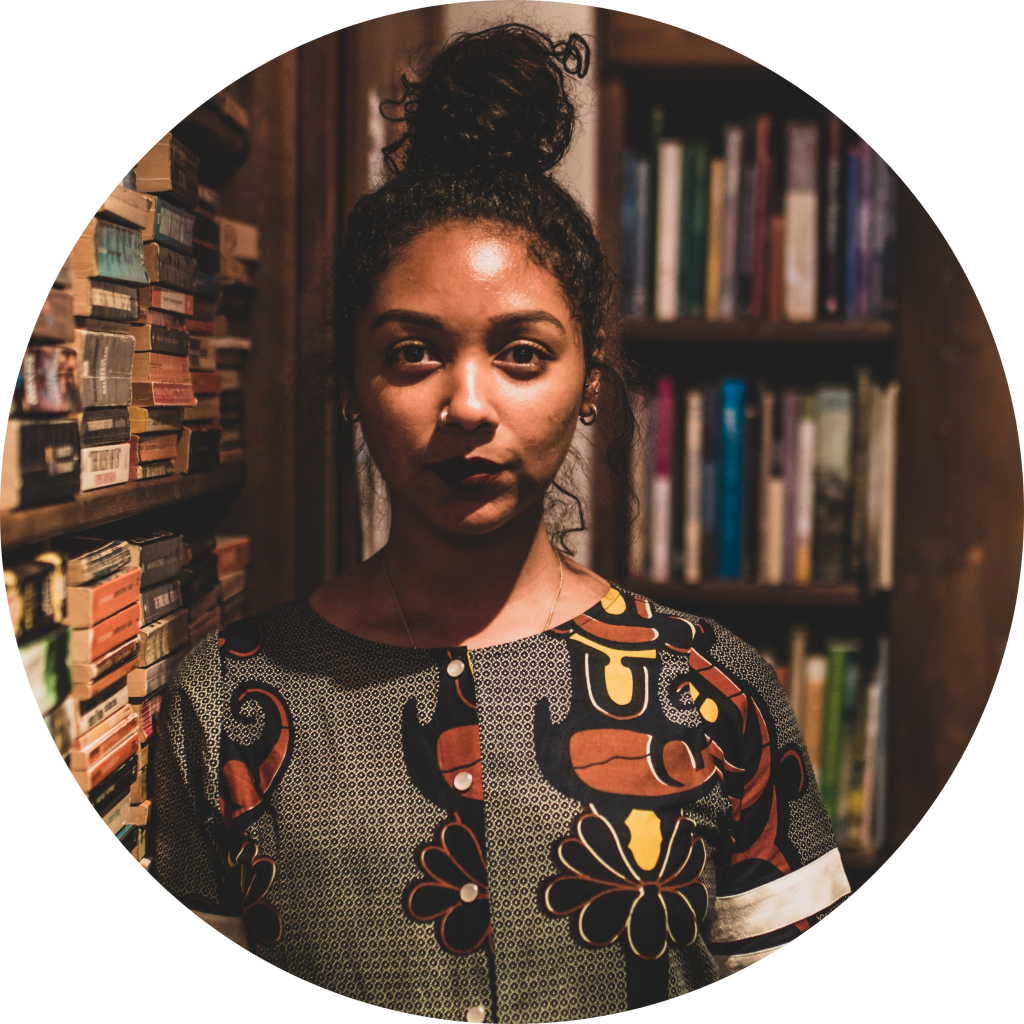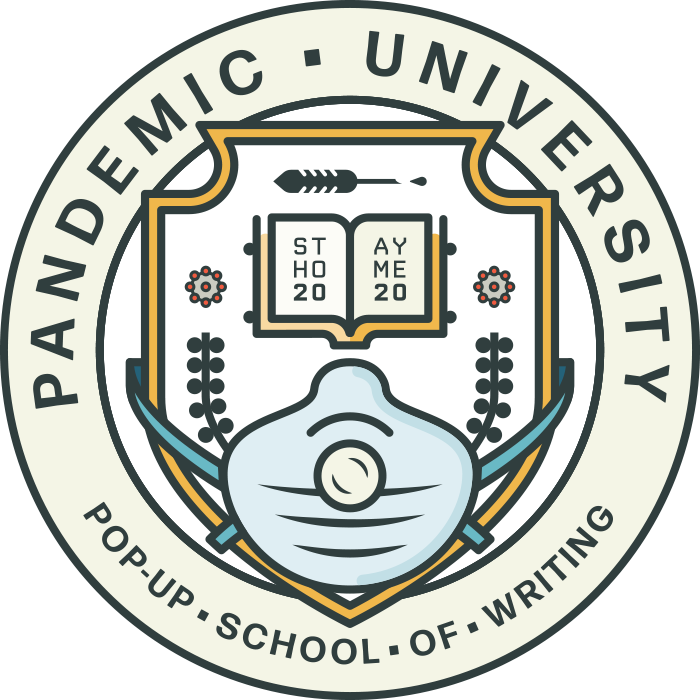
Safia Elhillo is a powerhouse of poetry, a faucet of words written well.
Named one of Forbes Africa’s “30 Under 30, Safia untangles complicated threads of identity, gender and violence in her work. Her 2017 poetry collection, The January Children, is a deeply personal navigation of the Sudanese postcolonial world and the experience of being “a stranger in one’s own land.” It earned her the Sillerman First Book Prize for African Poets and an Arab American Book Award.
Safia is currently a Wallace Stegner fellow at Stanford University, where she is working on not one, but two books for Penguin Random House: her followup poetry collection, Girls That Never Die, and a novel in verse titled Home Is Not A Country.
With that level of output, we’re left to wonder: how does she deal with writers’ block?
The answer: she doesn’t. And you don’t have to either.
In Safia’s PanU session, “The Poem’s Door: Finding the Portal to Inspiration,” on Aug. 24, she’ll teach poets some of her techniques to host inspiration and replicate the conditions that create it. (Tickets are $20 CAD and available until Monday, 12pm ET. Register here.)
Ahead of her Monday class, we asked Safia (pronounced like “mafia”) about how she says goodbye to writers’ block, contributes work to the Black Lives Matter movement, and found unlikely inspiration in an Ol’ Dirty Bastard lyric.
Register for The Poem’s Door: Finding the Portal to Inspiration (C$20)Has there ever been a time you have really struggled with inspiration?
Hala Alyan and I are currently doing a month-long exercise where we write and share a poem with each other every day. A lot of the stuff in this course is a direct dispatch from how I’m navigating this and what tools I’ve found most helpful. I always feel like I don’t write enough—I wake up every day wanting to write but often don’t get around to it. I struggle to sit down to work if I don’t feel like I have a preexisting idea. But this poem-a-day process has really been helpful for understanding, and healing, my relationship with the ways that I think poems get made.
Tell us about the title of your forthcoming poetry collection, Girls That Never Die. It sounds amazing by name alone.
I’ve wanted to use this title forever—it originally comes from an Ol’ Dirty Bastard lyric that I misheard: “I’m hanging out/partying with girls/that never die.”
It’s the partying that never die(s): “I’m hanging out, partying with girls; that never die(s),” but I was hearing as the girls that never die, not the party: “I’m hanging out, partying with GIRLS THAT NEVER DIE.” By the time I figured it out, I was already too fascinated with the idea. I wanted to spend time imagining this world of girls that never die, a world without the acts of violence that are imagined and enacted against our bodies.
Poetry is, of course, already a notoriously difficult industry. With the context of the pandemic, how are you staying upbeat and motivated? Any tips for budding writers trying to keep their heads up?
I’m trying to be gentle with myself in terms of motivation—like, yes, I generally do feel better while I’m writing. But I’m also trying to release myself from ideas around productivity right now and let myself rest when I need it. I’m reading a lot, often in the bathtub, which ultimately does make me want to write but in the moment I am not using it as a means to an end—just reading for the sake of reading.
Every year we are asked to celebrate this nation’s independence day, its freedom, while faced with the irony and cruelty of the fact that Black people have never gotten to fully partake in that freedom.
For someone who is maybe trying to be a little more active, there are all sorts of readings and workshops happening online these days, so geography doesn’t have to be a factor in the ways it once was in terms of what cities are like, literary hotspots and have a lot of programming. The small press Not a Cult has been doing pretty consistent online programming, for example, and lots of other places, too!
You recently co-wrote the script for a video for Movement 4 Black Lives called “What to My People is the Fourth of July?”, narrated by Daveed Diggs. How did you get involved with that project, and why was it important to you to contribute?
My friend Adam Mansbach reached out to me about putting this project together, and we came up with a list of writers we thought would be great for it. It all came together super quickly — less than two weeks from start to finish. We had each writer respond to the prompt individually, then we made a sort of Frankenstein group poem using lines from each of them.
The moment felt important to interrogate — the fourth of July was approaching while we were in an uprising, and the irony was just really … a lot. Every year we are asked to celebrate this nation’s independence day, its freedom, while faced with the irony and cruelty of the fact that Black people have never gotten to fully partake in that freedom.
The piece was the product of that mourning and that anger, honoring the original Douglass speech, and responding to how little, ultimately, has changed for us since then.
Finally, we like to ask all of our instructors: which books, movies or TV shows are getting you through the pandemic?
I am watching The Sopranos for the first time! Also watching and loving I May Destroy You. And reading lots of delicious new novels — The Death of Vivek Oji by Akwaeke Emezi, Luster by Raven Leilani, The Vanishing Half by Brit Bennett. Shoutout to my library card and the Overdrive app.
And I’m doing The Sealey Challenge (created by hero and icon Nicole Sealey), reading a book of poetry a day for the 31 days of August. I’ve loved every one of those books so far, particularly Washes, Prays by Noor Naga, Our Lady of the Ruins by Traci Brimhall, and Kontemporary Amerikan Poetry by John Murillo.
The interview has been edited for clarity and brevity.
Register for The Poem’s Door: Finding the Portal to Inspiration (C$20) Buy The January Children